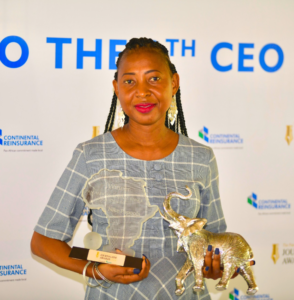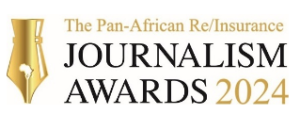Journalists and the news media have been urged to embrace ethics and technology for an independent media.
The call was made by Speakers at the third edition of the Amplify In-depth Media (AIM) Conference and Awards, held in Abuja on Friday 8 and Saturday 9 December 2023,
The two-day event was organised by the Media and Journalism (MAJ) cohort of the MacArthur Foundation led by the Wole Soyinka Centre for Investigative Journalism.
In his keynote address titled ‘From attention to intimacy: Journalism in the age of artificial intelligence’, Dapo Olorunyomi, Publisher of Premium Times and founder of the Centre for Journalism Innovation and Development (CJID), noted that journalism is a practice that must be done well.
Despite technological innovations, he emphasised that journalism practice must be rooted in a democratic tradition and fundamental ethics of truth, accuracy, and verification.
Amina Salihu, acting deputy director of the MacArthur Foundation, and Dina Sabi, the second secretary of the Netherlands Embassy in Nigeria, lauded the organisers’ commitment to foster democracy through their work in the media space.
Salihu acknowledged the symbiotic relationship between journalists and civil societies, underlining journalists’ role in ensuring accountability and transparency across all levels of governance. Sabi on her part, highlighted the media’s responsibility in empowering society through access to accurate and timely information.
Discussing the keynote address, panellists Deji Adekunle, programme director of NAMIP, and Naziru Abubakar, executive director/editor-in-chief of Daily Trust, called on journalists and media organisations to take introspection seriously and seek to strengthen their financial stability and independence. The session was moderated by Kimberly Nwachukwu, a senior reporter with Nigeria Info. In the conversation titled, ‘Media regulation and independence: Where is the balance?’ and moderated by Sharon Ijasan, Senior Correspondent at TVC News, panellists discussed how the media have been suppressed through regulations and insisted on objective reporting.
Motunrayo Alaka, in a breakout workshop, took the participants through the rudiments of crafting compelling investigative story pitches that resonate with audiences and effectively convey the issues spotlighted, even as Juliana Francis, the Deputy Editor of Eagle Online; and Deji Badmus, Founder of TV360, shared their experiences on how their investigative reports have produced impacts and shaped public opinions beyond earning them awards. Moderated by Emiene Odaudu of Allwomen Media, the session, ‘Ownership structure and media independence’, featured Ahaziah Suleiman of Voice of Nigeria; Oluchi Anams of AD4TVRadio; Yusuf Alli of The Nation and Victoria Bamas of International Centre for Investigative Reporting (ICIR). Alli admonished young journalists to be confident in ownership and control of their work. He urged them to be courageous to hold authorities accountable. Victoria Bamas noted that ICIR has diverse funding sources to mitigate external interference in their operations.
Kunle Adebajo of HumAngle moderated the ‘Media sustainability and the town and gown’ conversation. On the panel were Umaru Pate, the Vice Chancellor of the Federal University of Kashere; Theophilus Abbah, the Director of Daily Trust; Chinedu Anumudu, a lecturer at the Baze University; and Sharon Ijasan, of TVC News. Usifo Omozokpea of The Conversation Africa and Titilope Fadare of SciDev.Net took participants on the use of AI tools like Tableau, TinEye and Signal AI during the ‘Investigative Journalism and AI-101: Future of Investigative Journalism in the Wake of AI’ workshop. The session ‘Ethical considerations in journalism: Gatekeeping for journalism in a digital age: Are there still gates?’ was moderated by Azubuike Ishiekwene, Editor-in-Chief of Leadership Group. The panellists urged journalists to verify information before going to press.
Panellists at ‘Innovative tools and strategies for independent journalism in the digital age’ session encouraged journalists to embrace digital tools to better the quality of their work. Nkem Agunwa, Programme Manager of WITNESS Africa, moderated the session. The session ‘Media business models: What is working? What’s new? What’s missing?’, moderated by Kayode Akintemi, Managing Director of News Central, enjoined media organisation to ensure that stories are factual and true to avoid litigations. Dapo Olorunyomi, urged news organisations to follow the technology trend to meet up with the demands of sustainability at a workshop focused on ‘Entrepreneurial Journalism’ held during the conference.
In a session on ‘Donor funding for investigative journalism: How does investigative journalism live beyond intervention?’ moderated by Motunrayo Alaka , the panellists – Amina Salihu, Dayo Aiyetan, Executive Director ICIR, and Toyin Akinniyi, Vice President Luminate Foundation, advised media organisations to explore alternative funding for their investigative reports. In the final conversation, Abigail Ogwezzy-Ndisika, Director, Institute of Continuing Education, University of Lagos, and other panellists advised journalists to consider all age groups when writing their stories to diversify their audience base.





